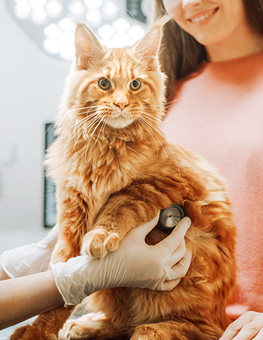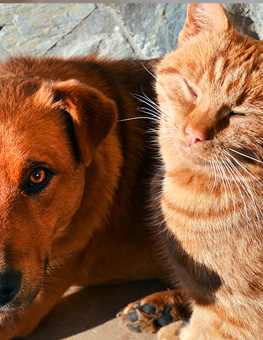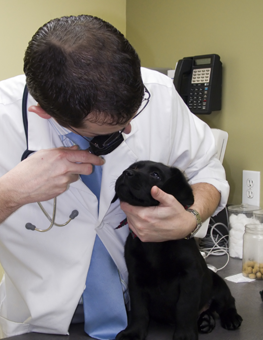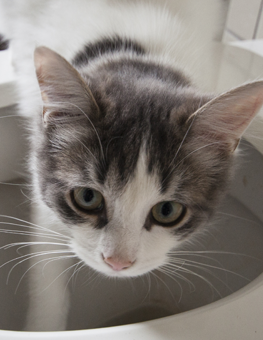The Importance of Vaccinating Your Pet
Vaccinating your cat or dog as a critical part of preventative care and responsible pet ownership.
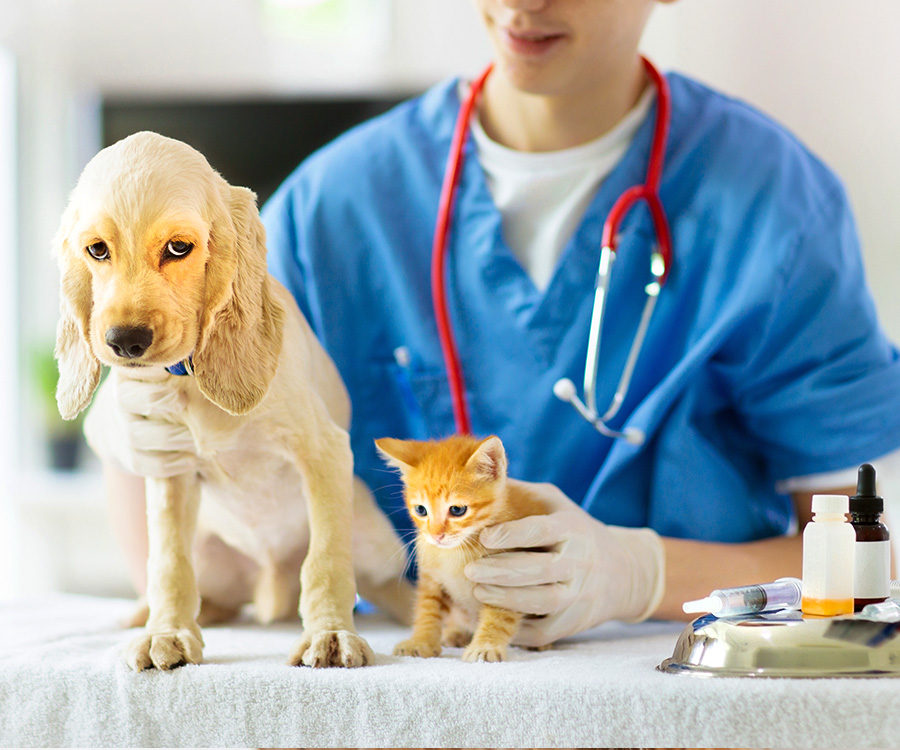

Vaccines create antibodies to build up immunity to diseases.
Vaccinations are essential to protecting your furry family member by creating a defensive level of antibodies to build up immunity from communicable diseases. In the simplest sense, when a cat or dog is vaccinated, he receives a disease-enabling organism to stimulate his immune system and ‘communicate’ to the body how to fight those diseases in the future.
While no vaccine is 100 percent effective, the proper inoculations can help your pet resist illnesses or recover much more quickly if they do become infected. It can be confusing and even overwhelming for pet parents when deciding which boosters are best for our pets. The more you know about vaccinations, the easier it will be to take informed care of your cat or dog.
Why Vaccinate Your Pet?
Vaccines do so much more than simply protect your pet.
Many states mandate vaccinations, such as rabies, for cats and dogs, and also require vaccination records from residents in order to obtain a pet license.
If you board your pet, plan to travel or stay in pet-friendly hotels, frequent dog parks and grooming salons, enroll him in doggie day care or a similar pet-sitting service, vaccinations may not only be required by an establishment, but also protect your companion from contracting contagious diseases from other animals as well as unintentionally spreading infection.
Staying up to date on routine vaccinations is important even for pets that remain predominantly indoors. Some of the most common dog diseases, such as Canine Distemper Virus, Canine Parvovirus, Canine Coronavirus, Infectious Canine Hepatitis, Rabies Virus, Bordetella, and Canine Parainfluenza Virus, are potentially airborne or known to be transmitted by air.
While outdoor cats and felines living in multi-cat households are more prone to disease, indoor cats and ‘only cats’ can get sick too. There is always the risk of your pet accidentally slipping outside, where they could become exposed. Wild animals which are known carriers of rabid diseases, such as bats and raccoons, can also potentially end up inside your home through chimneys, unscreened windows and open doors, posing a potential threat of transmission if your pet is bitten.
If your pet contracts a disease, it can be very difficult to treat. Even minor ailments can erupt into major health concerns. The good news is that most illnesses are easily preventable via routine vaccination.
Types of Vaccines for Cats and Dogs
There are many different types of vaccines to consider for your cat or dog. Some are administered alone, while others require a sequence of doses.
All cats and dogs are unique, and there are many factors which influence what vaccinations are best for your pet, such as age, breed, gender, environment/geography, family or genetic history, overall health, risk of exposure and local animal laws.
Your veterinarian can help assess your pet’s health and lifestyle to recommend a proper set and schedule of vaccines to keep your four-legged friend healthy. It is also important to keep in mind that vaccinations take a few days to a few weeks to become effective.
Core Cat Vaccines
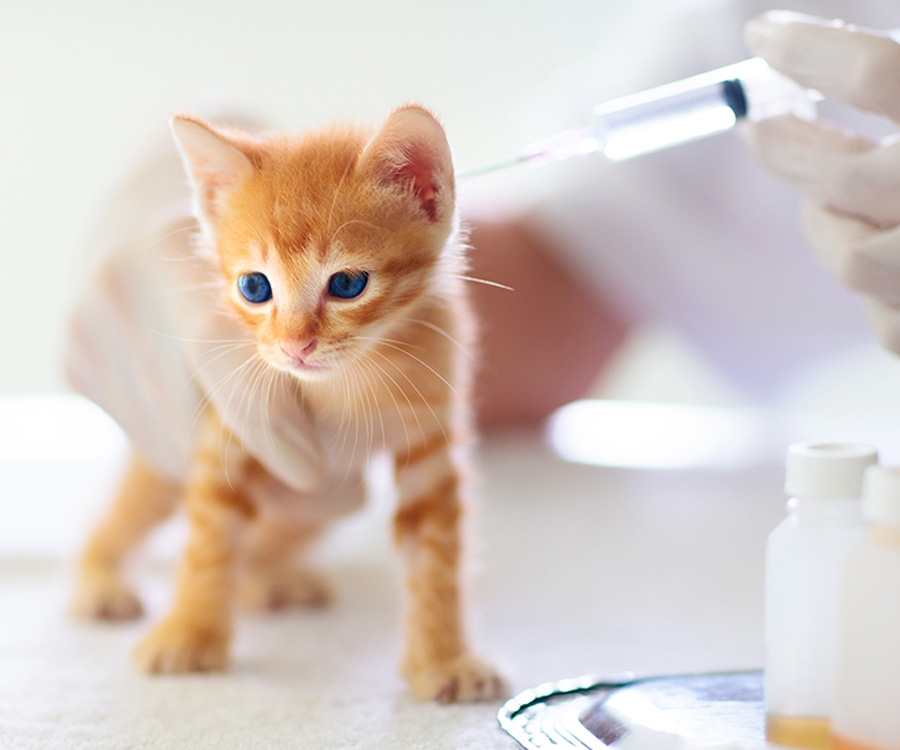

Many factors influence which vaccinations are best for your pet.
- Feline Calicivirus and Feline Rhinotracheitis: the two viruses most commonly responsible for upper respiratory infections in cats and kittens. They are extremely common viruses and almost all cats will be exposed to them at some point in their lifetime.
- Feline Panleukopenia: also known as ‘feline distemper,’ this type of parvovirus can prove to be fatal for infected cats.
- Rabies: a fatal disease that is contagious not only to other animals but to people as well. Rabies vaccinations for cats are required by law in most states.
Other Vaccinations for Cats
- Chlamydia: a bacterial infection that causes severe conjunctivitis. It is often included in the distemper combination vaccine.
- Feline Leukemia (Felv): a viral infection that is transmitted through close contact. This vaccine is generally only recommended for cats that go outside.
- Feline Immunodeficiency Virus (FIV): a viral infection that is transmitted through close contact. This vaccine is generally only recommended for cats that go outside.
- Feline Infectious Peritonitis (FIP): a viral infection most common in boarding facilities and feral colonies. FIP is almost always fatal. Most house cats do not have a significant risk of contracting this disease.
- Bordetella: a bacterium that causes highly contagious upper respiratory infections. This vaccine is usually recommended before your cat goes to a boarding kennel or groomer.
Core Dog Vaccines
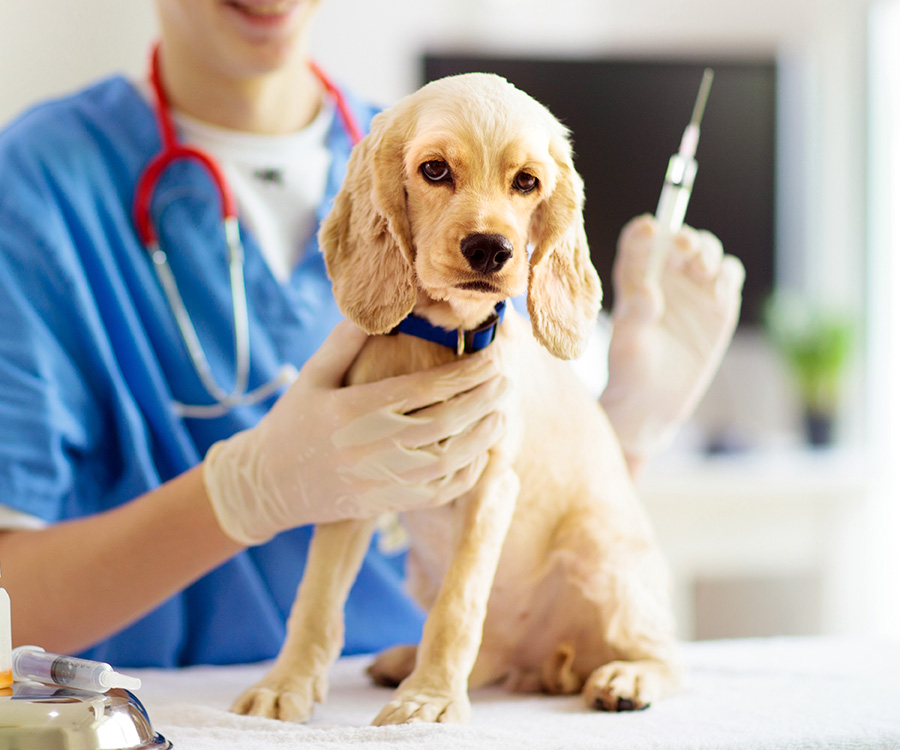

Vaccinations take a few days to a few weeks to become effective,
Together, these 4 vaccines are often given in a single injection known as the DHPP vaccine:
- Distemper: a highly contagious and often fatal viral infection. It affects the respiratory and nervous systems.
- Hepatitis: a viral infection of the liver which can lead to severe kidney damage.
- Parvovirus: a highly contagious and often fatal viral illness that is characterized by severe vomiting and bloody diarrhea leading to dehydration. Young puppies are especially susceptible.
- Parainfluenza: a highly contagious repository virus that causes coughing, loss of appetite, lack of energy, nasal discharge and fever.
Additionally,
- Rabies: a fatal disease that is contagious not only to other animals but to people as well. Rabies vaccinations for dogs are required by law in most states.
Other Vaccinations for Dogs
- Lyme Disease: this bacterial disease results from being bitten by an infected deer tick. Lyme disease can cause permanent and painful disabilities such as kidney failure, lameness, as well as prolonged joint and muscle pain.
- Leptospirosis: this bacterial infection is carried by many wild animals and most commonly transmitted to dogs through contact with infected water, soil, mud or urine. This disease causes liver and kidney disease and can be fatal. It is zoonotic, which means, like rabies, it can be transmitted from other animals to humans.
- Bordetella: this bacterium contributes to the respiratory disease known as kennel cough. Dogs are at risk when exposed to other canines in kennels, grooming facilities, training classes, day care and dog parks.
- Influenza: this highly contagious respiratory infection can have a significant impact on dogs. There are two known strains of canine influenza that have been reported.
- Corona Virus: this virus infects the intestinal tract and is more prevalent in the southern United States.
Can You Over-Vaccinate?
Animal vaccine science is a much more recent breakthrough compared to that studied in and developed for humans. Within the last decade, improvements in veterinary medicine have decreased the risks associated with vaccines and made a huge impact on our pet’s health and wellbeing. Still, vaccines continue to be a subject of debate. With more scientific research being conducted than ever before, pet parents are becoming more skeptical and educating themselves to ensure their pets avoid serious health issues and potentially fatal side effects.
While vaccines are meant to prevent illness, they can sometimes cause it as well. Reactions to vaccines in pets are not a frequent occurrence, but still a risk, and can range in severity from mild, temporary swelling to anaphylactic shock. Similarly, vaccinating pets unnecessarily can also pose adverse side effects, though rare.
Prevention and Risk Assessment
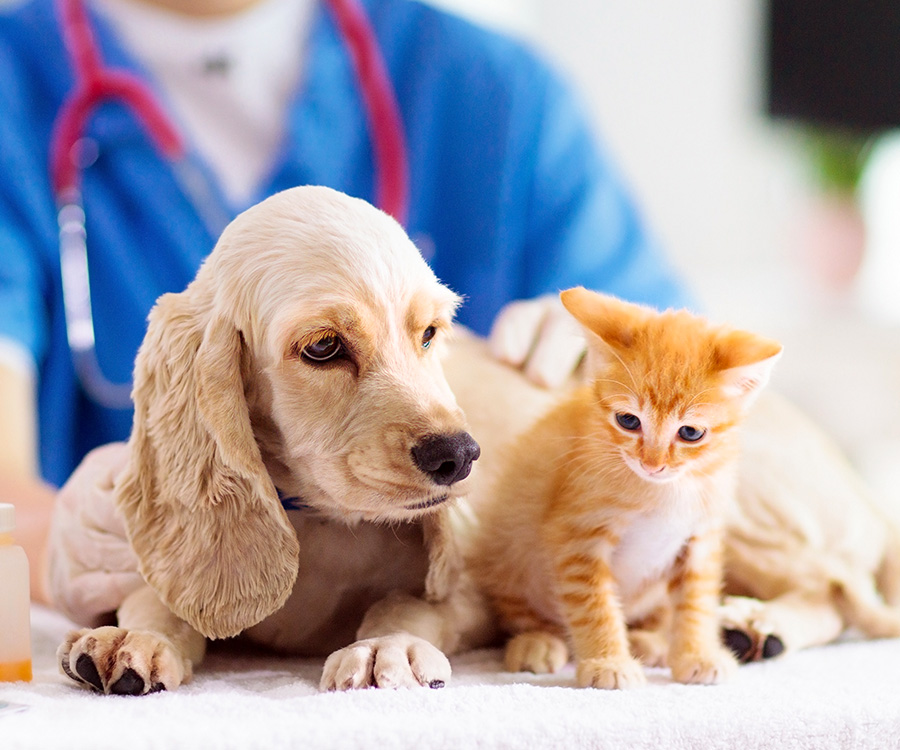

Prepare for a vet visit by making a list of your pet's previous vaccines.
So how does a responsible pet parent balance these risks? Before meeting a veterinarian, prepare by learning and researching. Make a list of your cat or dog’s previous vaccines and collect their medical records from a former vet, shelter or breeder. Your pet’s doctor will assess the lifestyle of your companion and determine which vaccines should be given, and how often. A dog that visits a groomer, park or pet store frequently, for example, is a good candidate for the Bodetella vaccine. But a pup that never comes in contact with other dogs is unlikely to need that type of protection.
Not every pet will receive the same vaccinations because they are not exposed to the same risks. By being well informed, you’re showing that you are serious about your cat or dog’s care. Be prepared to be assertive and confident. The goal of all veterinarians should be to prevent disease using careful risk assessment to ensure your furry family member is protected without over-vaccinating.



